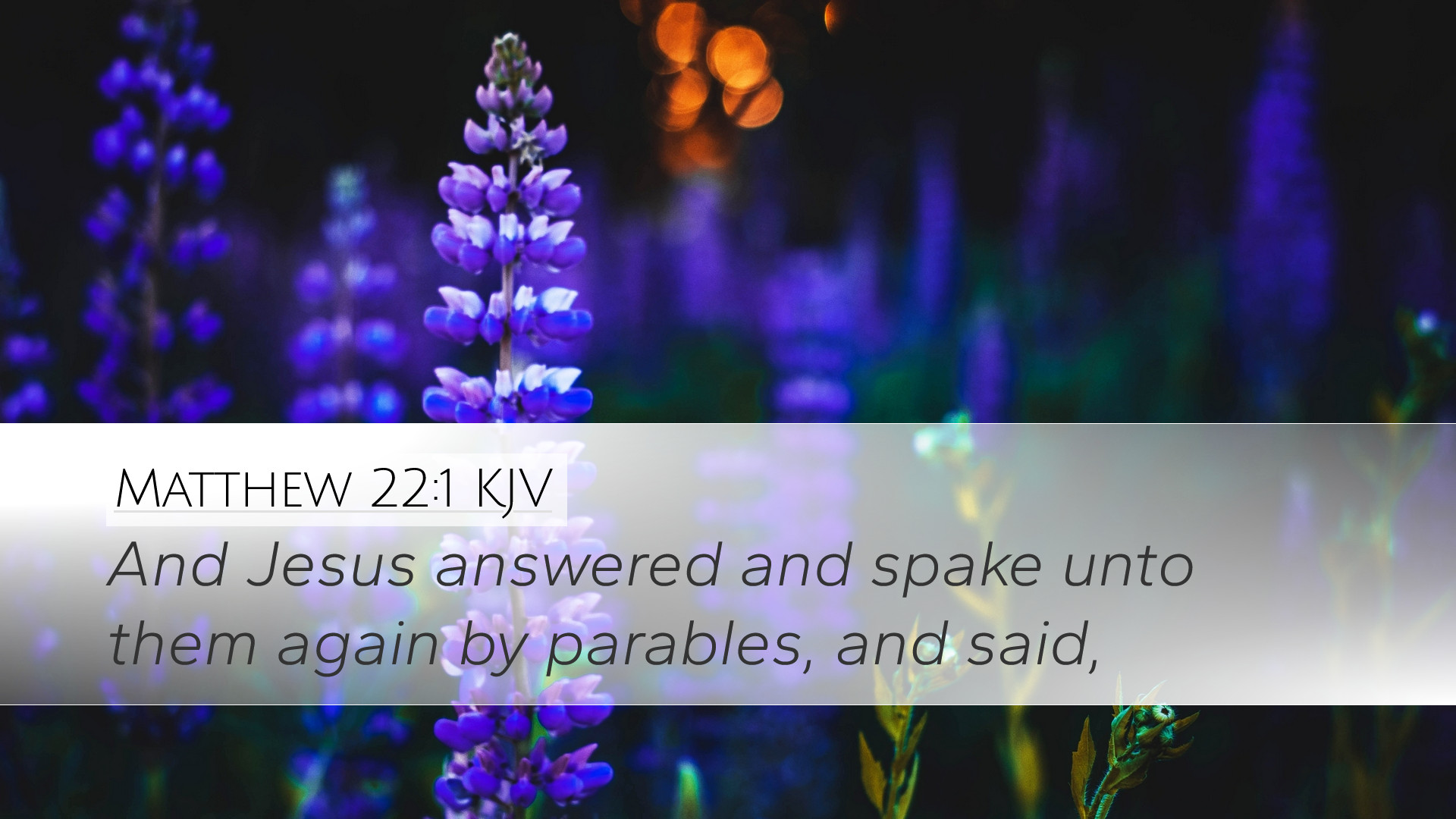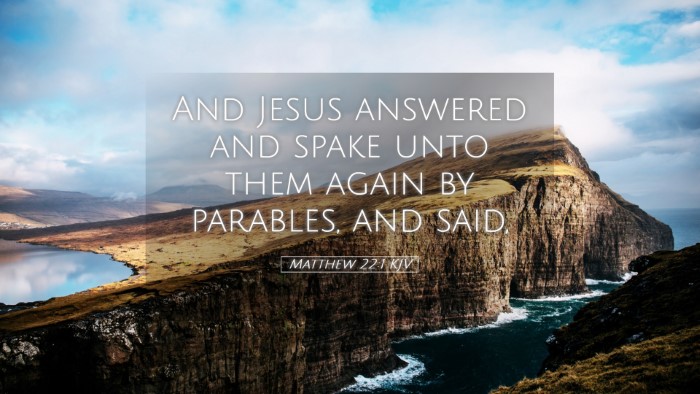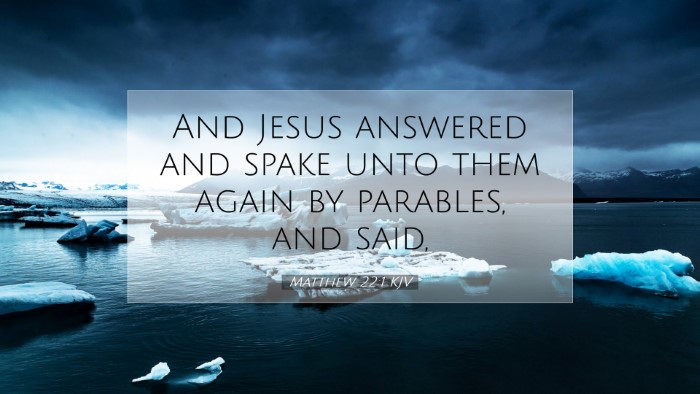Commentary on Matthew 22:1
Matthew 22:1 states, "And Jesus answered and spake unto them again by parables, and said." This verse introduces one of the most significant parables of Jesus, expressing profound theological truths and providing insight into God's kingdom.
Context and Setting
In the Gospel of Matthew, this verse marks a moment of transition wherein Jesus continues His teaching in parables. Understanding the context is critical as it signifies not only the rejection of Jesus by the Jewish leaders but also highlights the inclusive nature of God’s invitation to His kingdom.
- Historical Background: The parables spoken by Jesus frequently addressed His contemporaries, challenging their beliefs and inviting them to reconsider their understanding of God's invitation to salvation.
- Literary Context: Matthew 21 sets the stage by detailing the authority of Jesus and His challenging of the religious leaders, which leads naturally into subsequent teachings encapsulated in parabolic form.
The Parable of the Wedding Feast
Following verse 1, Jesus tells the Parable of the Wedding Feast (Matthew 22:2-14), illustrating the nature of God's kingdom and the response it elicits from humanity.
- Invitation Extended: Jesus begins His parable with the invitation of a king who prepares a wedding feast for his son. This signifies God's proactive grace in inviting people into a relationship with Him.
- Invitation Rejected: The invited guests refuse to come, symbolizing the Jewish leaders' and people's rejection of Jesus. This aspect elucidates the concept of free will in responding to divine call.
- Inclusive Divine Grace: The king sends out servants to invite others, demonstrating that God's invitation transcends social boundaries, reaching out to all, regardless of societal status or merit.
Theological Implications
This parable encapsulates significant theological themes relevant for pastoral teaching and theological reflection:
- God's Sovereignty and Human Responsibility: The interplay between divine invitation and human response underlines the sovereignty of God in salvation while affirming human agency.
- The Nature of the Kingdom of Heaven: Matthew emphasizes that the kingdom is both a present reality and a future hope, inviting reflections on how this shapes Christian living.
- The Judgment of Rejection: The consequences of rejecting God's invitation further reinforce the seriousness of unbelief and the urgency of responding to God's grace.
Insights from Public Domain Commentaries
Several classic commentators provide rich insights that can aid deeper understanding:
-
Matthew Henry:
Henry highlights the greatness of the feast, suggesting that it represents the fullness of joy and fellowship found in salvation. He speaks of the importance of being prepared and responding appropriately to God's call.
-
Albert Barnes:
Barnes emphasizes the rejection faced by Jesus and interprets the parable as an illustration of how those who were first invited (the Jews) failed to appreciate their privilege, thus leading to a broader inclusion of the Gentiles.
-
Adam Clarke:
Clarke delves into the cultural context of wedding feasts in that era and notes the intensively personal nature of the invitation. He reflects on the seriousness of ignoring or rejecting such a personal call from the king.
Practical Applications
This parable calls for reflection and action in various contexts:
- Evangelism and Outreach: The passage serves as motivation for believers to share the gospel actively, mirroring the king’s desire for his banquet to be filled.
- Faithful Response: It challenges congregants to evaluate their own responses to God's invitations, ensuring they do not let worldly affairs detract from spiritual priorities.
- Community Inclusivity: The message of inclusive grace encourages churches to welcome all people, breaking down barriers that may prevent them from coming to the feast.
Conclusion
Matthew 22:1 and the subsequent parable encapsulate the essence of God’s gracious invitation to all humanity while also serving as a warning against the dangers of apathy and rejection. The intertwined messages of grace, responsibility, and the urgency of God's call resonate deeply in theological discourse and pastoral practice.


